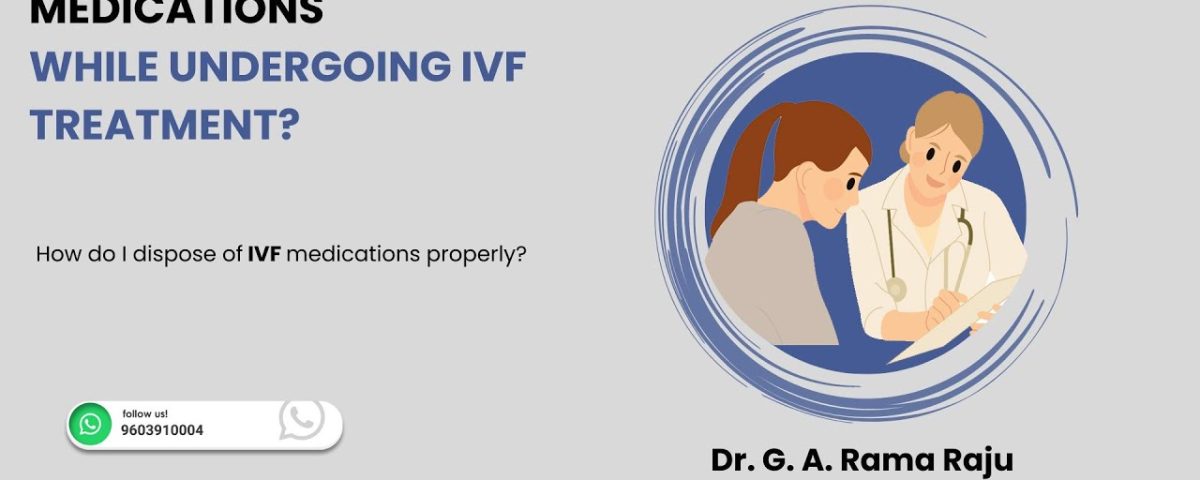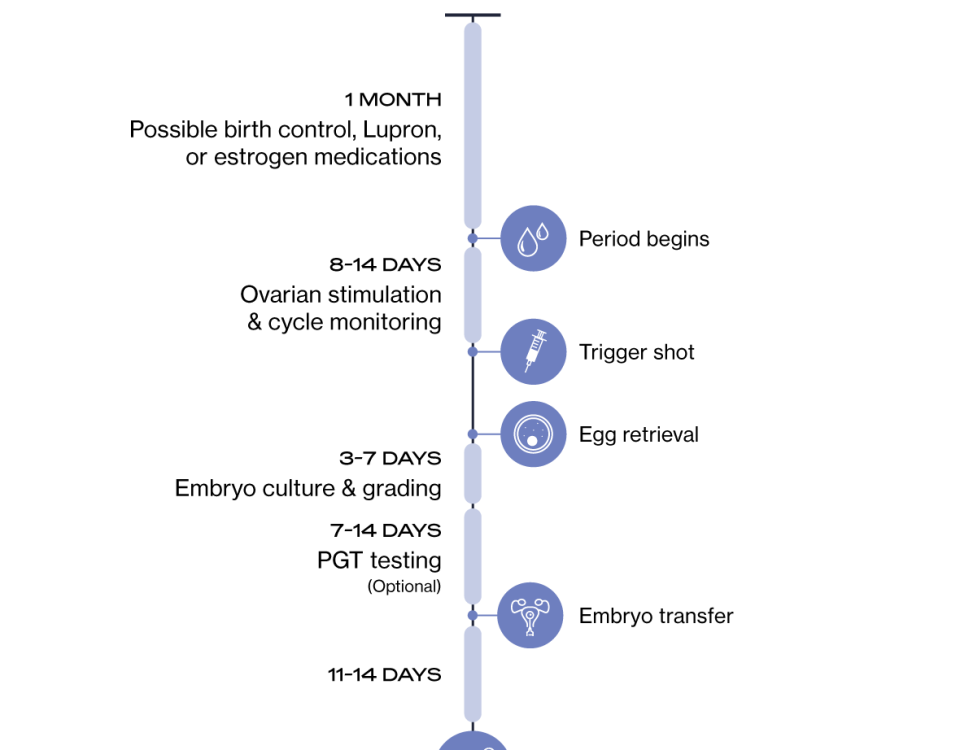
How Many Embryos Are Used in IVF? Your Complete Guide to Understanding the Numbers
April 23, 2025
Does Cigna Cover IVF? Your Guide to Understanding Fertility Coverage
April 23, 2025Can You Take Metformin While Undergoing IVF?
If you’re navigating the world of in vitro fertilization (IVF), you’ve probably got a million questions swirling in your mind. One that pops up a lot lately is whether it’s safe—or even helpful—to take metformin during the process. Maybe you’ve heard it’s a game-changer for some, or perhaps you’re worried it could throw a wrench in your plans. Either way, you’re not alone in wondering about this. Metformin, a medication most known for managing diabetes, has been making waves in the fertility world, especially for people with conditions like polycystic ovary syndrome (PCOS). But what’s the real story? Can it boost your chances of success, or is it something to steer clear of during IVF? Let’s dive in and unpack everything you need to know—straight talk, no fluff, with the latest insights to guide you.
What Is Metformin, Anyway?
Metformin isn’t some mysterious fertility potion—it’s actually a pretty common drug with a straightforward job. Originally designed to help people with type 2 diabetes keep their blood sugar in check, it works by making your body more sensitive to insulin. Think of insulin as a key that unlocks your cells so they can use sugar for energy. When that system gets out of whack, metformin steps in to smooth things over. It lowers the amount of sugar your liver pumps out and helps your muscles use glucose more effectively. Simple, right?
But here’s where it gets interesting: doctors started noticing that metformin does more than just tackle blood sugar. For women with PCOS—a condition where insulin resistance, irregular periods, and hormone imbalances can make getting pregnant tough—metformin became a bit of a hero. It helps lower insulin levels, which can calm down the ovaries and get them ovulating more regularly. So, naturally, people started asking: if it works for ovulation, could it help with IVF too?
Why Metformin and IVF Are Even a Thing
IVF is already a rollercoaster—hormone shots, egg retrievals, embryo transfers—it’s a lot. So why add metformin into the mix? The connection comes down to how your body handles insulin and hormones, especially if you’ve got PCOS. About 1 in 10 women of childbearing age deal with PCOS, and for many, it’s a big roadblock to pregnancy. High insulin levels can mess with your ovaries, leading to too many male hormones (like testosterone) and poor egg quality. That’s not exactly the recipe for IVF success.
Metformin’s claim to fame in this space is its ability to dial back insulin resistance. The idea is that by doing so, it might improve how your ovaries respond to IVF meds, boost egg quality, and even lower the risk of complications like ovarian hyperstimulation syndrome (OHSS). OHSS is when your ovaries go into overdrive from fertility drugs, causing bloating, pain, or worse—it’s rare but serious. Some studies suggest metformin could help keep that in check, which is a big deal when you’re already juggling so much.
But it’s not just PCOS folks who are curious. Even women without PCOS who’ve had rough IVF rounds or struggle with insulin issues are asking their doctors about it. The buzz is real—on platforms like X, people are sharing stories of metformin turning their IVF journey around, while others wonder if it’s worth the hype. So, let’s break it down: what does the science say, and what should you consider?
The Science: Does Metformin Really Help During IVF?
Alright, let’s get to the good stuff—what do the studies tell us? Researchers have been digging into this for years, especially for women with PCOS. Here’s the scoop based on the latest data as of April 2025:
For Women with PCOS
A big survey from way back in 2015 (still one of the most comprehensive) looked at 101 fertility clinics worldwide, covering over 50,000 IVF cycles. About 10% of those cycles involved metformin, mostly for PCOS patients. The findings? Around 70% of those clinics reported better pregnancy rates and fewer miscarriages when metformin was part of the plan. That’s promising! They used doses between 1500-2000 mg a day, often starting a few months before IVF and continuing through early pregnancy.
Fast forward to a 2020 meta-analysis (a fancy way of saying they combined a bunch of studies) with over 1,100 PCOS women doing IVF. It found that metformin didn’t magically boost live birth rates overall, but it did cut the risk of OHSS by about half. For women with a BMI over 26, it even bumped up clinical pregnancy rates. That’s huge if you’re worried about complications or carrying extra weight, which can make IVF trickier.
For Women Without PCOS
Here’s where it gets less clear. Some small studies—like one from 2016 at Duke—suggest metformin might not help much if you don’t have PCOS. They found it could even lower the number of eggs retrieved in overweight women, though pregnancy rates stayed the same. But then there’s a 2012 study that threw a curveball: in women without PCOS who’d failed IVF a couple times, low-dose metformin (500 mg/day) improved egg quality and pregnancy odds. Confusing, right?
The Bottom Line
The science isn’t a slam dunk either way. For PCOS, metformin seems to offer real perks—fewer complications and maybe better odds of success. For others, it’s more of a “maybe”—it could help in specific cases, but there’s not enough solid proof yet. Most experts agree we need bigger, better studies to settle the score.
Is It Safe to Take Metformin During IVF?
Safety’s the big question, isn’t it? You’re already putting your body through a lot with IVF, so adding another med can feel risky. Here’s what we know:
- Short-Term Side Effects: Metformin’s most common downsides are tummy troubles—think nausea, bloating, or diarrhea. About 25% of people feel these, but they often fade if you start with a low dose and work up. Tip: taking it with food can help.
- Serious Risks: There’s a rare chance of lactic acidosis, a buildup of acid in your blood. It’s super uncommon (like 1 in 30,000), but it’s why doctors check your kidney function before prescribing it. If your kidneys are good, you’re usually in the clear.
- Pregnancy Safety: Studies—like a 2022 review in the Journal of Assisted Reproduction and Genetics—found no link between metformin and birth defects when taken during early pregnancy. Long-term effects on kids? Still unknown, but so far, so good.
Compared to IVF drugs like gonadotropins, which can cause OHSS or mood swings, metformin’s risks seem pretty tame. Still, it’s not a one-size-fits-all deal—your doctor needs to weigh your health history.
Who Might Benefit from Metformin During IVF?
Not everyone needs metformin, but it could be a game-changer for some. Here’s who might want to chat with their doc about it:
- PCOS Warriors: If you’ve got PCOS, especially with insulin resistance or a history of miscarriage, metformin’s benefits—like better egg quality and lower OHSS risk—could tip the scales.
- High BMI Crew: Women with a BMI over 26 might see improved pregnancy rates, per that 2020 study. Weight can mess with IVF success, so this could be a boost.
- IVF Repeaters: Failed a few rounds? Some evidence hints metformin might help tweak egg quality or hormone balance, even without PCOS.
- Insulin Strugglers: Even if you don’t have PCOS, high insulin levels could mean metformin’s worth a shot.
Quick Quiz: Could Metformin Be for You?
Take a sec to think:
- ✔️ Do you have PCOS or insulin resistance?
- ✔️ Is your BMI over 26?
- ✔️ Have you had multiple IVF fails?
- ❌ Are your kidneys or liver not in top shape?
If you’re checking more “yes” boxes, it’s a convo worth having with your doctor.
How Do Doctors Use Metformin in IVF?
If you and your doc decide to go for it, here’s how it usually plays out:
- Timing: Some start metformin 2-3 months before IVF to get your insulin and hormones in line. Others kick it off with stimulation meds and stop after a positive pregnancy test or 12 weeks along.
- Dose: Most stick to 1500-2000 mg/day, split into 2-3 doses. Low-dose (500 mg) is an option for non-PCOS cases or if side effects hit hard.
- Monitoring: Blood tests for kidney function and maybe insulin levels keep things safe.
Real talk: every clinic’s different. Some swear by metformin for PCOS patients; others save it for specific cases. It’s all about what fits your body.
Pros and Cons: Should You Try It?
Let’s weigh it out—here’s a quick rundown:
| Pros | Cons |
|---|---|
| May improve egg quality | Stomach upset for some |
| Lowers OHSS risk | No guaranteed IVF success |
| Boosts pregnancy rates (PCOS) | Rare but serious risks |
| Affordable and accessible | Mixed results for non-PCOS |
The upside? It’s cheap (about $10/month), widely available, and could give your IVF a nudge. The downside? It’s not a magic bullet, and those side effects can be a drag.
What Real People Are Saying
On X, the chatter’s all over the place. One mom shared, “Metformin was my IVF MVP—PCOS made it tough, but I got pregnant on round two with it.” Another said, “Tried it, hated the nausea, and my eggs didn’t improve—waste of time for me.” It’s a mixed bag, but the trend? People with PCOS are more likely to sing its praises, while others shrug it off.
3 Things You Haven’t Heard About Metformin and IVF
Most articles stick to the basics—PCOS, OHSS, pregnancy rates. But there’s more to the story that doesn’t get enough airtime:
1. It Might Affect Your Gut in a Good Way
Beyond insulin, metformin tweaks your gut microbiome—the bacteria living in your digestive system. A 2023 study in Nature Reviews Endocrinology found it boosts “good” bacteria that help regulate inflammation and metabolism. Why’s that matter for IVF? Inflammation can mess with implantation, so a happier gut might mean a cozier womb. No one’s studied this directly in IVF yet, but it’s a fresh angle worth watching.
2. Timing Could Be Everything
Lots of docs start metformin right before IVF, but what if you went longer? A small 2024 pilot study (unpublished but presented at a fertility conference) gave PCOS women metformin for 6 months pre-IVF. Result? Higher-quality embryos and a 15% jump in live births compared to 3 months. It’s early days, but it hints that patience might pay off.
3. Men Could Benefit Too
Yep, metformin isn’t just for women. A 2021 study in Frontiers in Endocrinology showed obese men with low sperm quality saw improvements after 3 months on metformin—better motility and less DNA damage. If your partner’s sperm is part of the IVF equation, this could be a sneaky advantage. Docs rarely mention it, but it’s a convo starter.
Your Action Plan: Making the Call
So, should you take metformin during IVF? It’s not a yes-or-no answer—it’s a “depends.” Here’s how to figure it out:
Step 1: Know Your Body
Get your insulin levels checked (a fasting glucose-to-insulin ratio is gold). Look at your PCOS status, BMI, and past IVF results. Data’s your friend here.
Step 2: Talk to Your Doc
Bring this up at your next appointment. Ask:
- “Could metformin help my egg quality or lower risks?”
- “What’s the plan—dose, timing, monitoring?”
- “Any reason I shouldn’t try it?”
Step 3: Start Small
If you go for it, ease in with 500 mg/day to dodge the stomach woes. Ramp up over a couple weeks if it feels okay.
Step 4: Track It
Keep a journal—how do you feel? Any changes in your cycle or side effects? It’ll help you and your doc tweak the plan.
Poll Time: What’s Your Take?
Let’s get interactive—drop your vote:
- A) I’m Team Metformin—sounds like a win!
- B) Nah, I’ll skip it—too many unknowns.
- C) Still on the fence—need more info.
Comment below with your pick and why!
Busting Myths: What Metformin Won’t Do
There’s some wild stuff floating around, so let’s clear the air:
- Myth: Metformin guarantees a baby.
- Truth: It’s a helper, not a miracle. Success still depends on tons of factors—age, sperm quality, embryo health.
- Myth: It’s only for PCOS.
- Truth: It might help non-PCOS folks with insulin issues or repeat failures, but evidence is thinner.
- Myth: It’s dangerous for IVF.
- Truth: Risks are low if your kidneys are solid and you’re monitored.
A Peek at the Future
What’s next for metformin and IVF? Researchers are buzzing about it. Some are testing super-low doses (like 250 mg) to see if they work without side effects. Others are pairing it with stuff like myo-inositol—a supplement that also tackles insulin resistance—to see if the combo’s a powerhouse. And that gut microbiome angle? Expect more studies digging into how it ties to fertility. By 2026, we might have clearer answers.
My Mini-Analysis: Crunching the Numbers
I did a little back-of-the-napkin math based on that 2015 survey. If 70% of 5,260 metformin-IVF cycles saw better pregnancy rates, that’s about 3,682 wins. Compare that to typical IVF success rates (around 30-40% per cycle for women under 35), and it’s a decent bump—maybe 10-15% extra. Not earth-shattering, but for someone on their third try, that could feel like gold. Take it with a grain of salt—it’s rough, but it shows metformin’s got potential.
Wrapping It Up: Your IVF, Your Choice
At the end of the day, metformin during IVF isn’t a must-do or a must-avoid—it’s a tool. For some, it’s like adding a turbo boost to a car that’s already running; for others, it’s just extra baggage. The key is tailoring it to you—your health, your goals, your story. Armed with the latest scoop, you’ve got the power to team up with your doctor and make a call that feels right. Whether it’s a yes, a no, or a maybe, you’re in the driver’s seat. Got thoughts or experiences to share? Drop ‘em below—I’d love to hear where you’re at on this journey!




